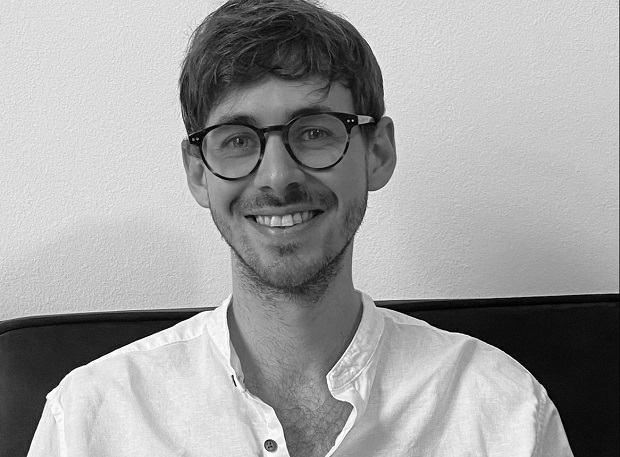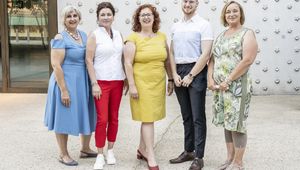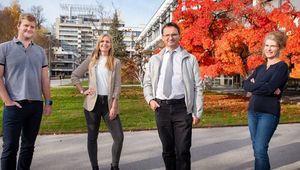Niklas, 29, is from Vienna. We spoke with him about why he chose to earn a degree via distance learning.

What attracted you to the idea of earning degree via remote learning?
Niklas (Research Assistant, JKU Artificial Intelligence in the Life Sciences Group, graduating in 2022): I earned my Bachelor's degree in Vienna and distance learning makes it possible for me to stay in Vienna. In addition, I can also spend several weeks in my home state of Vorarlberg. The Distance Learning program is flexible, without time and location constraints, making it much easier for me as a student who also works. I can balance my studies with my part-time job.
What was your everyday routine like?
Niklas: During the start of the semester in particular, I often went the Distance Learning Center in Vienna to get together with other students. During the semester, we met weekly as part of a study group to work on assignments together. I mostly streamed lectures live from home via Zoom, and I could interact with instructors either via chat or the webcam. If you are unable to attend a class, you can watch the digital recordings later. There are recordings for all of the classes in the AI program. University exams were held digitally at the Distance Learning Center and during pandemic waves.
What have been the most rewarding/difficult moments during your studies so far?
Niklas: The most rewarding moment was handing in my Master's thesis. Whenever I review my thesis, I reflect on two very educational years at the JKU. The most difficult moments were finals weeks at the end of the semesters.
Did your degree program meet your expectations?
Niklas: I had anticipated a well-rounded, technological education combining hands-on and theoretical aspects as well as a program educationally in line with the latest state of research, giving me the required skillset to counteract the social issues of today and tomorrow. In all aspects, the AI program has met - and exceeded - my expectations.
Would you recommend your distance learning program to others?
Niklas: Yes, I recommend the program to anyone who has an affinity toward modern technologies.
What do you find special about the Artificial Intelligence program?
Niklas: The program is organizationally unique in Austria, especially being able to study anywhere in Austria free of time and location constraints while also having the opportunity to exchange ideas with others in person at the Distance Learning Center. In my opinion, it is a strong example of just how digital technologies can complement conventional university models. The program content is also extremely innovative. With AI pioneer Sepp Hochreiter at the helm, the AI program addresses both historical and current issues in the field, covering technical and mathematical skills that enable graduates to go into research or apply machine learning to address industrial problems.
How does distance learning add value to you or your life?
Niklas: The high degree of flexibility gave me an opportunity to complete a large part of my studies in various locations in and outside of Austria. I was able to be where I wanted to be, such as visiting friends and family in my hometown, without falling behind in my studies. In addition, distance learning made it much easier to balance university studies and a job which, in my opinion, is ideal for students who have to work.
The Center for Distance Learning in Bregenz is celebrating its 40th anniversary this year – is there anything you would like to add?
Niklas: I would like to sincerely thank everyone who have made my studies possible in this type of format and hope you enjoy a wonderful anniversary celebration.
 Go to JKU Homepage
Go to JKU Homepage











